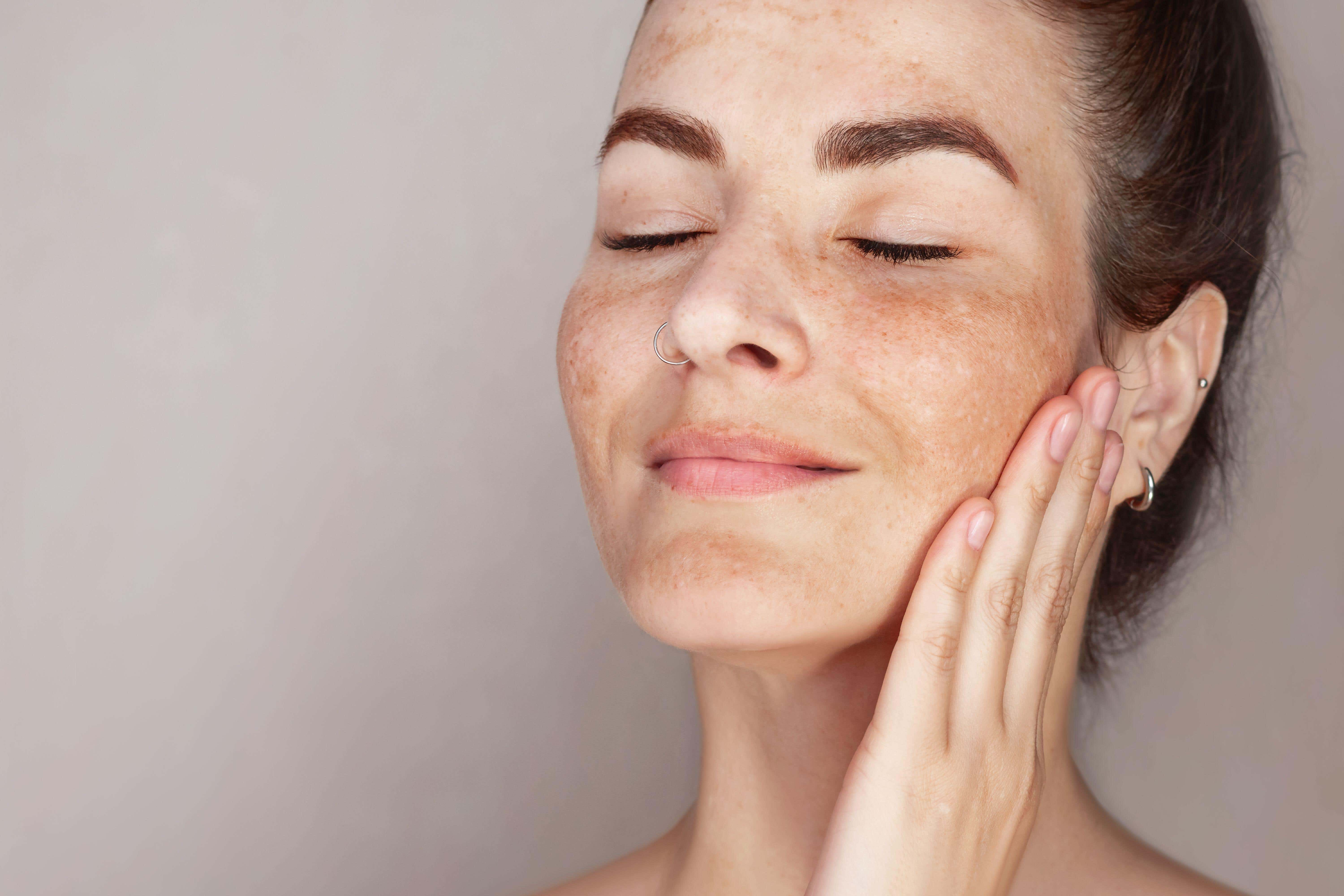Why the sun gives you hyperpigmentation and what you can do about it
Leading dermatologists and celebrity facialists on how to treat and prevent hyperpigmentation from the sun

Your support helps us to tell the story
From reproductive rights to climate change to Big Tech, The Independent is on the ground when the story is developing. Whether it's investigating the financials of Elon Musk's pro-Trump PAC or producing our latest documentary, 'The A Word', which shines a light on the American women fighting for reproductive rights, we know how important it is to parse out the facts from the messaging.
At such a critical moment in US history, we need reporters on the ground. Your donation allows us to keep sending journalists to speak to both sides of the story.
The Independent is trusted by Americans across the entire political spectrum. And unlike many other quality news outlets, we choose not to lock Americans out of our reporting and analysis with paywalls. We believe quality journalism should be available to everyone, paid for by those who can afford it.
Your support makes all the difference.The sun is great for your skin in many ways: it pumps it full of vitamin D, gives you a healthy glow and generates feel-good hormones. However, it’s no secret the sun can also be hugely dangerous. Overexposure to harmful UV rays can show up in the form of hyperpigmentation.
“Hyperpigmentation occurs when skin cells overproduce melanin, the pigment that adds colour to the skin,” says Pharmica superintendent pharmacist, Carolina Goncalves. “This overproduction can lead to visible patches of darker skin, often aggravated by environmental or genetic factors, such as sun exposure, hormonal changes, or inflammation.”
Though pigmentation from the sun in the form of freckles is now rightfully embraced, the non-uniform appearance of hyperpigmentation can be a source of insecurity for many.
We hear from leading dermatologists and celebrity facialists on how to treat and prevent hyperpigmentation from the sun.
What causes hyperpigmentation?
Although sun exposure is hyperpigmentation’s leading catalyst, there are other factors that can contribute to the dark spots. “Hyperpigmentation results from overactive pigment cells and an excess of melanin in the skin,” says Sharon Hilditch MBE FCGI, CEO and founder of Crystal Clear Skincare, and facialist to Madonna, Nicole Scherzinger and Jude Law.
“It typically is due to excessive exposure to the sun’s UV rays, but hormonal changes during pregnancy, certain medications, and various medical conditions can also cause it.”
How to prevent hyperpigmentation
If you’re on holiday or simply outside for most of the day, SPF is the cheapest and easiest way to prevent permanent dark spots. “To prevent hyperpigmentation, wear a high-factor medical-grade SPF and limit your exposure to the sun,” says winner of the BBC’s The Apprentice, Dr Leah Totton, who recommends SkinCeuticals.
“Skincare has become very clever and there are lots of active brightening ingredients that can suppress the excess melanin production that causes pigmentation,” says Hilditch. “It also actively treats the dark marks to help the pigmentation come to the surface and be shed in a normal fashion.”
SkinCeuticals Ultra Facial UV Defense SPF50 Sunscreen Protection 30ml, £36, Look Fantastic
How to reverse hyperpigmentation
There are a number of over-the-counter products that are dermatologist-approved, that can assist in treating hyperpigmentation. From professional-grade formulas such as Arbutin to suppress hyperpigmentation production, to innovative cosmetic treatments like laser and microdermabrasion; if you already have hyperpigmentation, there are effective ways to fade the dark patches safely.
“Ingredients like bearberry plant, mulberry root, Saxifraga sarmentosa and Scutellaria baicalensis extract tackle the deepest of pigmentation marks, age spots and sun damage,” says Hilditch. “The Crystal Clear Skin Brightening Complex is great as it treats hyperpigmentation at home with no harsh chemicals.”
“Azelaic acid is particularly effective in treating post-inflammatory hyperpigmentation and melasma,” says founder of Kanzen Skincare, David Connor. “For more stubborn pigmentation, hydroquinone is a powerful pigment reducer, often prescribed by dermatologists.”
The Ordinary Alpha Arbutin 2% + HA – 60ml, £18.50
Crystal Clear Skincare Skin Repair Moisturiser, £44, Debenhams
Facetheory Blemicalm Azelaic Acid 15% Clarifying Serum – 30ml, £26
What your skincare routine should look like
Alongside cleansing, moisturising and following with SPF50 every morning, “Retinol or vitamin C are two good ingredients to incorporate into your skincare,” says skincare expert Amish Patel. “However, in doing their job of brightening and stimulating new cell turnover, you should still protect your face from the sun.” Patel recommends reducing retinol usage in the summer months and not having laser treatments on exposed skin when the weather is warm.
To prevent further pigmentation developing, your cleanse should always be followed with an antioxidant-infused serum. “Antioxidant protection to combat free-radical damage will help tighten and firm the skin,” says Marylebone clinician, Dr Joney De Souza.
“Antioxidants support the skin’s natural mechanism to repair damage and protect against future damage.” De Souza recommends ZO Skin Health, a medical-grade skincare brand that specialises in sun damage and anti-aging.
The Ordinary Ascorbyl Glucoside Solution 12%, £14.10
ZO Skin Health Brightalive – 50ml, £89 (was £143.55), Reliable Medicare